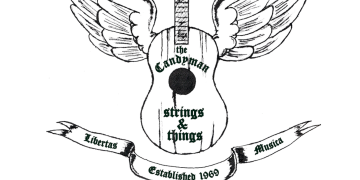 Inflation continues to wreak havoc on every faction of our industry, including educational services. Because of this, it is harder than ever to pinpoint the “true value” of a music store’s educational offerings. How do we know exactly what a music lesson is worth, and in a time when so much financial pressure is on families, what should a music camp cost?
Inflation continues to wreak havoc on every faction of our industry, including educational services. Because of this, it is harder than ever to pinpoint the “true value” of a music store’s educational offerings. How do we know exactly what a music lesson is worth, and in a time when so much financial pressure is on families, what should a music camp cost?
What influence should someone’s individual reputation have on the pricing of the services? Do we take the humble route and draw more students to us by keeping our pricing affordable and in-line with others, or do we instruct fewer people and fetch a higher rate? For the record, this is a real debate because great educators deserve respect; however, fundamental family needs out-rank everything and everyone. Honestly speaking, if you come from a “service mindset,” you know that the opportunity to teach music is a gift to both the teacher and the student.
I wrestle daily with the snake-like squeeze of inflation. One interesting note is that the Washington, D.C./Virginia, and Nashville areas are the two hottest boom spots in the country. I house my business in one location, and have family in the other, and the areas are booming all right – the only problem is that every family in these two regions is squeezed to an eye-bulging level by the python of inflation, not to mention the already-inflated cost of living expenses of the busy areas. This simply means fundamental expenses such as food, rent, and gas all stand in line ahead of services such as private education, music camps, or even weekend shows. The question then becomes: how do we defend our businesses and distinguish ourselves as a substantial value for consumers?
Let’s start by talking about protecting the sacred cow: music education. How do we protect our music programs, when people are hesitant to spend money on anything that is non-essential? Here is an even bigger question, do we dare raise fees on a non-essential product at a time when a dime is worth a nickel? Pricing properly during this period is an art form. It is a given that everyone’s costs are higher, but as important as private education is, it remains an option far from the top of a working family’s priority list.
The first step to counter this is protecting the quality of the services we offer. I know I have said that before but as inflation rises, our quality must rise as well. “Better quality” is also our best tool to distinguish ourselves and our stores from franchises, and other competitors.
The second critical concern is what to do about fees during an inflationary period. The obvious debate lies in the question, “If everyone is raising prices, why shouldn’t I?” The answer to that is you can, but music lessons are not a necessity. If we raise the prices, we risk creating an environment where music lessons are only for the elite. If we price our services more conservatively, we are available to everyone. The key is finding the sweet spot, which is to offer quality service at practical prices.
Differentiation should be your strategy. The most important hedge against the challenges we currently face is for us to distinguish our business from others, just as recording artists do and have done for years. I have friends in the industry who have found unique ways to earn consistent trust from their customers, turning them into lifetime clients. Certain dealers achieve this through style and consistent excellence, others through excellent repair work, and others through their community involvement. Regardless, if your music store lacks soul, or there is no noticeable differentiation between your model and others, then you are generic, which diminishes your influence and trust.
In my business world, performance and music education have made the difference. I am constantly sharing with our customers my family’s story, and the tales and back stories of being a third-generation music family. Customers love to hear anecdotes that validate their trust in your business. I am sure there is a plethora of stories among the MMR readership that I would love to hear to share in the column. Share please!
As I close, I want to thank MMR for featuring my book The New Musician, The Art of Entrepreneurship in Today’s Music Business published by Rowman & Littlefield, in this month’s issue. I also owe a debt of gratitude to Larry Morton and the wonderful folks at Hal Leonard for distributing the book to music stores.
I weave various tales, a few with hilarity, throughout the interviews with notable world-class musicians and music industry leaders. I also reflect on important practices that hopefully will help promising musicians navigate the arduous challenges they will inevitably face. Make no mistake, there is a seat at the table for you! It is my hope you will join me and share in moving these important musical discussions forward. We are all a part of the story, and it is ours to share with tomorrow’s new musicians.























